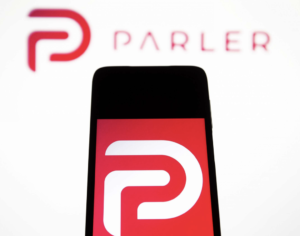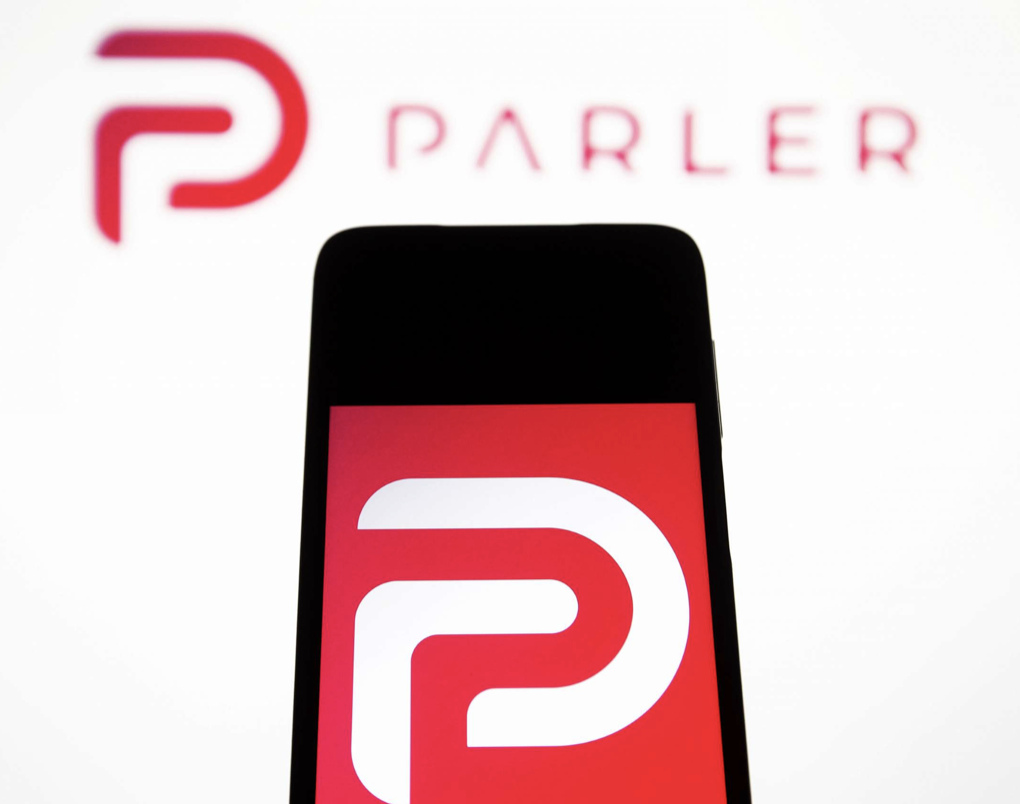
Apple has denied the right-wing social media app Parler from returning to the App Store once again. The company, according to chief policy officer Amy Peikoff, has adopted protocols to flag content that incites violence or is an attack on “immutable and irrelevant characteristics such as race, sex, sexual orientation, or religion.” However, Apple still denied Parler’s request due to the hate speech found on the site.
Parler has now been banned from Apple, Google Play, and Amazon, and has received backlash for its lack of content regulation since the insurrection of the U.S. Capitol on Jan. 6, 2021. Additionally, many conservative figures, including former president Donald J. Trump, have been removed from popular social media apps like Twitter and Instagram for spreading misinformation and potentially inciting violence. Consequentially, “conservative censorship” is frequently thought to be on the rise, raising questions as to where creators and users of apps like Parler will turn to in the future.
Joseph Russomanno, a professor at Arizona State University and an expert in media law, believes that the First Amendment is being properly utilized. “Our law regards social media platforms as private companies, meaning they therefore are within their right to determine who has access to their services and who does not,” Russomanno said. “If an app like Parler depends on other Big Tech companies to house it, so to speak, then that platform has the legal right, and some would argue, also an ethical right, to be able to say what kinds of apps can be on that platform.”
Despite being banned from the most popular hosting providers, Parler has now reportedly transferred to the domain Epik, which is known for hosting far-right platforms. Gab, another right-wing “free speech” site that gained 2.3 million new users in the week following the insurrection of the Capitol, is also now hosted on Epik, suggesting that alternative hosting providers may be the key for far-right media apps to stay afloat.
Are conservative voices “censored” voices?
This past January, when former president Donald Trump was banned from Twitter, along with a number of other social media apps, it created a stir of concern among conservative media users. Steve Daines, a senator from Montana, tweeted on Jan. 8, “Big Tech censoring [Trump] and the free speech of American citizens is on par with communist countries like China and North Korea.” Yet Trump’s removal can also be painted as an individualized case: according to both Russomanno and Paul Barret, a professor at NYU School of Law, who has released multiple studies in the past year focused on media regulation and the supposed censorship of conservatives, Trump’s removal was a one-of-a-kind event.
Trump was in a unique position, having a large social media presence and an ability to shape how his supporters think and behave, as reflected in the insurrection at the Capitol on Jan. 6. “Trump’s involvement in inciting that violence made him vulnerable to the really unusual punishment of having his accounts removed,” said Barret. “I don’t think the same platforms are going to be pulling down every politician who gives a controversial speech.”
Yet many believe Trump’s removal is just one example of a wider issue. Ryan D’Afflitto, a 22-year-old officer in the U.S. Army, emphasized that Trump is far from the only conservative that has been removed from social media in the past year. “After either banning, suspending, or demonetizing popular conservative social media commentators like Steven Crowder, The Epoch Times, James O’Keefe, etc., and taking down the posts of many smaller scale conservatives, it definitely seems like Big Tech has a bias against dissenting opinions.”
Users are not removed for no reason. Placing restrictions on harmful content, including misinformation, hate speech, and the incitement of violence, is an inherently necessary part of creating a safe social media environment. “Just because there are limitations on speech doesn’t mean that the First Amendment has been violated,” Russomanno said. “Sometimes those limitations are determined to be advantageous to society. Keeping people from being killed, for example.”
Many feel that political bias influences this content regulation, however. Ramirez, a 20-year-old sophomore at NYU Stern School of Business, has only heard of conservatives being removed from social media platforms. “A lot of Democratic senators and governors have said some pretty heinous things throughout the course of the last couple months and were unpunished for it,” he said.
What lies ahead
As of now, hosting providers have the legal right to regulate what apps are allowed on their platforms, and apps have the right to ban users who violate their community guidelines. This leaves sites like Parler forced to turn to alternative hosting providers such as Epik. And while this does mean Parler will be much less easily accessible, it does not mean it will become insignificant.
“It doesn’t take that many posts to get a bunch of people with guns together to converge at a particular place and seek to do some type of mayhem, so, users remain a threat even if they are not particularly influential in the larger culture,” said Barret.
As long as social media companies and hosting providers are ruled to be private companies in the U.S. court of law, they will legally continue to ban the content that they feel is harmful, explained Russomanno. This raises concerns about where banned users will turn to express their ideas online. If they are communicating in secret, such as on an encrypted platform, potential violence and danger will be more difficult to detect and prepare for. However, Barret offered an analogy: if there is chaotic criminal activity on a city block, police show up and disperse the violent scene, even if the criminals may then take their mischief to dark alleyways where it is less easily detected. Similarly, social media apps remove harmful users to protect the general public. “In both cases, you need to do what you can to stop the bad guys from doing what they’re doing, while also being aware of the risk that they’ll pop up someplace else,” he said.
Parler’s goal of functioning as the online “world’s town square” is an increasingly popular notion. The internet has become the centralized place of public discourse in the modern era, and many therefore believe that the government, not individual private companies, should regulate what can be said online. However, “when we talk about a true town square, that’s government-owned property, whether that’s a city park or a corner of an intersection where people congregate,” said Russomanno. The internet is not publicly owned property, yet many argue that it should be for additional reasons, including speed and accessibility.
Despite what the future holds, it is clear that public discontent with the American media is on the rise. “Occasionally, Congress or a congressional committee brings the managers of Big Tech companies, the Zuckerbergs of the world, before them to answer questions, and nothing ever comes of it” said Russomanno. “Something needs to start resulting from these conversations.”








